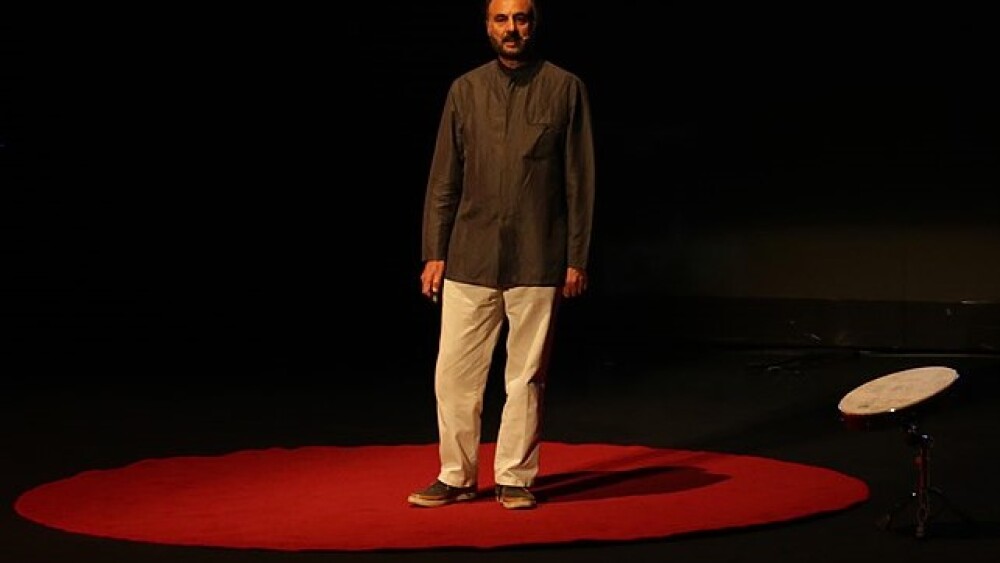When students return to Oberlin College in Ohio in early September, some of them will be taking classes from religion professor Mohammad Jafar Mahallati, who has been accused of helping to cover up a mass-murder while serving as a diplomat for the Islamic Republic of Iran in the late 1980s.
Oberlin administrators have accepted Mahallati’s denials, but they now have more to consider than his guilt or innocence in the alleged coverup. In light of his ties to the Islamic Republic of Iran, they have good reason to question his real agenda at Oberlin. Is he using his position at the school to promote peace and friendship and an honest understanding of Islam, or is he a shill for the Iranian regime?
One piece of evidence Oberlin administrators will have to consider in their assessment of Mahallati’s career is a letter he sent to the Iranian parliament in 2018 defending himself against charges of disloyalty leveled at him by hardliners in the Iranian regime. In a letter obtained by FWI, Mahallati emphasized his loyalty and utility to the Islamic Republic of Iran. Writing in Persian to the Iranian parliament, Mahallati told a very different story from the one he tells in English to the Oberlin community, portraying himself as a peacemaker.
Mahallati penned the letter in response to the Iranian parliament listing him as a dual national who posed a national security threat. To lend credence to this accusation, his critics reported that he had been arrested by the regime in the late 1980’s upon his return after his term as a diplomat at the United Nations had ended.
Mahallati began his letter by noting the importance of his “opportunity to introduce Islamic teachings, especially Qur’anic research, to about a hundred American students each year.” He also declared that the accusations against him “are pure lies, and in my professional life I have never been a dual national government director, nor [have I] taken money from the US government for any political or non-political matter...”
In the letter, Mahallati asked Ali Larijani, then speaker of the Iranian parliament, to “take the necessary measures to correct the report, which has libeled and raised utterly false allegations against this humble man, and to delete my name from the report, which has nothing at all to do with what the report is about.”
Mahallati affirmed his usefulness to the regime, declaring that it his “national and religious duty” to continue spreading Iranian Shi’ism as a teacher in the West. This national and religious duty should not “neglect the share of Iranian and Shiite culture in this [American] society.”
He also mentioned the pervasive influence of the rival Saudis at Georgetown and Harvard. “Currently, many students who study Islam in these institutions are naturally influenced by the menus of their founders and supporters,” Mahallati wrote. “Surprisingly, in this situation, some people in our homeland have tried to harm the two or three remaining Iranian-Shiite teachers in the field of Islamic studies who are still working!”
Mahallati further highlighted his value to the regime by reminding the Iranian government how China has benefited from investing outside of China and that Iran should recognize this and do the same. He concludes that “it is still surprising that some are trying to cut the relationship of the community of seven million Iranians living outside of Iran with their motherland. All of this at the time that some countries in the Middle East, together with the United States, are building a consensus for an economic sanctions against Iran!” Mahallati ended his letter by stating that Iran needed to overcome the sanctions against it and that Iranian Americans could do a lot to help.
This message in the 2018 letter is similar to the arguments he made in a 2013 article Mahallati wrote for Iranian Diplomacy, a website run by Seyyed Mohammad Sadegh Kharraz, former deputy foreign minister for the regime. In the 2013 article, Mahallati called on Iran to include Islamism in its foreign policy, asking: “Can a Shiite foreign policy neglect the Shiite contribution to the growth of the new generation of Islamic sciences being created in the West?”
Mahallati’s 2018 letter is also congruent with his presence on the editorial board of an Iranian journal, Sepehr-e-Siasat, which published an article praising the violent Iranian proxy Hezbollah as “a regional power” that promotes Shiite identity and has taken “important measures to confront the regional domination system and the Zionist regime.” (Mahallati’s name disappeared from the masthead of this publication soon after FWI reported on its presence.)
An Alliance Against Islamic Regime of Iran Apologists (AAIRIA), a group that advocates for removing Mahallati from Oberlin, member, Frieda Fuchs, a political scientist and former visiting professor at Oberlin College, has concluded that Mahallati uses his position at Oberlin to promote Iranian interests. “As a professor, he teaches his students a cherry-picked view of Islam, aligned with Shia religious values and in line with his country’s official policies,” she said. “He did so in 1988 during his tenure as UN ambassador; he continues to do so today. He is a perfect apparatchik, the devil’s advocate for his regime’s bidding; he projects himself as a messenger of peace, and a victim of a broader Zionist right wing conspiracy.”
Mahallati who reportedly spends time in Shiraz, Iran when not teaching at Oberlin, did not respond to request for comment.
The upshot is that while Oberlin administrators have dismissed concerns that Mahallati helped cover up a mass killing in 1988, they have yet to contend with his ongoing ties to the regime accused of the crime.
Susannah Johnston is the investigative reporter for Focus on Western Islamism (FWI).

